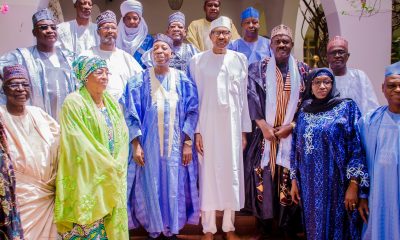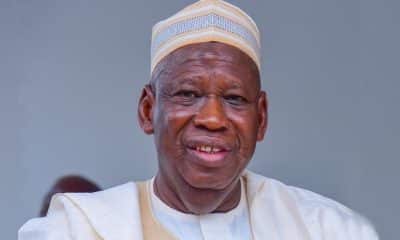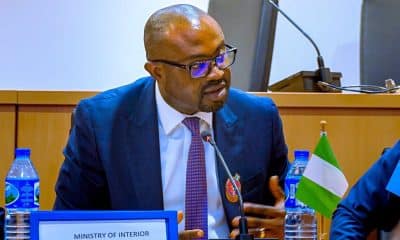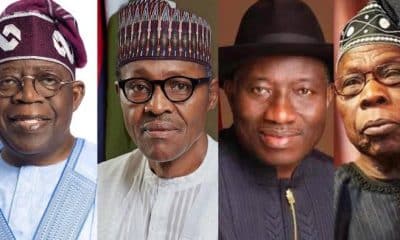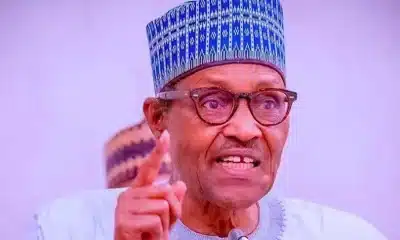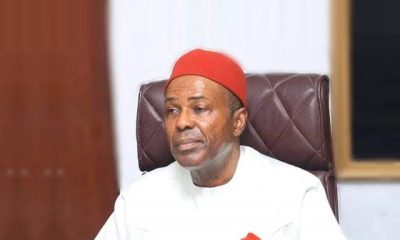Opinion
What The Buhari-Osinbajo’s Administration Lacks In Its Fight Against Corruption
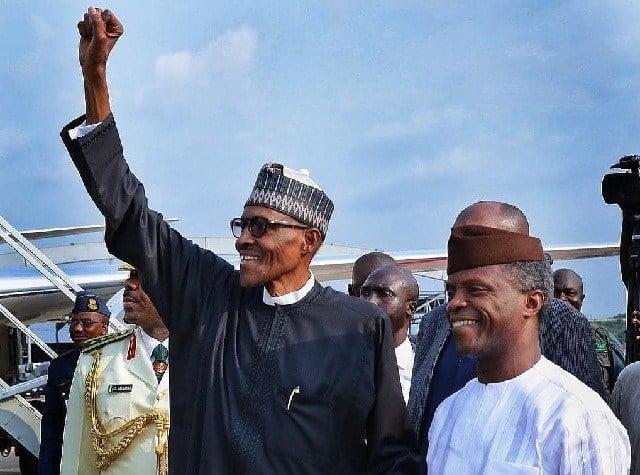
What Is Wrong With Buhari’s Fight Against Corruption – Opinion
While President Muhammdu Buhari– led government lauds itself as one rescuing Nigeria from corruption, it has particularly in recent times, been plagued by criticisms that the fight is majorly targeted at his opposition.
In a gathering of heads of anti-corruption agencies of the African Union in Abuja recently, Buhari said “The momentum for our electoral victory could not be separated from the revolt of the people against glaring endemic corruption”.
He said he was elected to fight corruption. That’s absolutely true. The burning issues in the 2015 elections were endemic corruption and widespread insecurity, and Nigerians turned to a former military ruler, with a reputation for strict discipline, zero tolerance of corruption, asceticism and frugality.
The Economist magazine described Buhari as a “sandal-wearing ascetic”, and a columnist for the London Times called him a “party pooper”, someone who would throw gloom over social enjoyment.
Both at home and abroad, Buhari was seen as a no-nonsense puritan who could rid Nigeria of cancerous corruption and impunity in public office. Buhari himself said in London during the campaign: “There will be no confusion as to where I stand on corruption“, adding that “the corrupt will not be appointed into my administration”.
Yet Olu Fasan of the Vanguard writes that in the four years of President Buhari’s administration, the common view is that corruption, or perception of it, has increased, rather than decreased.
Even President Jonathan, whose blithe insouciance about graft paved the way for Buhari’s election, is unashamedly claiming a moral victory, saying recently that “Nigeria is more corrupt under Buhari than under me”. But Jonathan was simply echoing Transparency International, whose Corruption Perception Index shows that Nigeria dropped 12 places between the 2016 and 2017rankings.
Increasingly image damaging is the fact that foreign governments and investors are taking their cues from such findings. Recently, writing in a British financial newspaper, City A.M, the former UK International Development Secretary, Priti Patel, warned investors about the “corrosive effect of corruption” in Nigeria, saying that: “Despite the President’s public anti-corruption platform, Transparency International has not seen any reduction in corruption since Buhari took over”. And, in a recent interview with ThisDay, the Deputy British High Commissioner to Nigeria, Laure Beaufils, said: “Sadly, corruption is often something we see across sectors that we cover here in Nigeria”.
Of course, the Buhari government strongly rejects these views, claiming in the recently launched APC manifesto that “grand-scale corruption has been nipped in the bud”. But faced with international perceptions to the contrary, and allegations of massive corruption swirling around the government, who believes the presidency’s protestations?
Yet, no one, not even President Buhari’s strongest critics, can question his personal integrity. The president’s body language and rhetoric, as well as those of Vice President Yemi Osinbajo, leave no one in doubt about their moral indignation against widespread corruption in Nigeria. But tough rhetoric and moralisation are not enough. To succeed, any anti-graft campaign must have three critical elements: political credibility, effective institutions and strong public support. Unfortunately, the Buhari government’s war against corruption lacks these elements, Vanguard notes.
First, Buhari’s administration seemingly suffers from a serious credibility gap; there is a strong perception that the government’s anti-graft war is selective and politicised. As a military head of state, Buhari jailed politicians, regardless of their parties, for alleged corruption. But as a politician and a civilian president, he seems to believe that only opposition politicians are corrupt and those from his own party are not! Several examples of such differential treatment abound. I will not bore you with them here. But the perception is not lost on the international community.
In a recent report by the London-based Chatham House, the authors wrote that: “During Buhari’s tenure, Nigeria’s anti-corruption agencies have assiduously investigated former government officials, while at the same time sparing sitting officials and ruling party ‘bigwigs’ from close scrutiny”. And in her City A.M article, the former UK International Development Secretary accused President Buhari of “staging show trials of opponents of a regime that is accused of corruption and graft, while simultaneously shielding his own party members and inner circle”. No anti-graft war can be credible with such strident criticisms.
Then, there is the problem of institutional integrity. The Buhari government is fighting corruption using mainly administrative and extra-judicial means, “recovering”assets through secret deals or extra-judicial measures. But lack of transparency will undermine the integrity of any anti-graft campaign. The fact that the impartiality of the EFCC is often questioned and that theAppeal Court recently ruled that the Special Presidential Investigation Panel, SPIP, was acting beyond its powers raise serious issues about the institutional integrity of the anti-graft agencies. Furthermore, the government often talks about the effectiveness of administrative tools, such as the Treasury Single Account and the Bank Verification Number. But, in the end, you can’t fight corruption without strong legislation. Where is the Proceeds of Crime legislation? Where are the Unexplained Wealth Orders?
Naija News recalls that members of the house of representatives called for the sack of the SPIP chairman, Okoi Obono-Obla, adding that the president should dissolve the Special Presidential Investigation Panel in view of the arbitrary use of powers and abuse of office of the chairman.
Perhaps the biggest obstacle to Buhari’s anti-graft war is public cynicism or indifference. No anti-corruption campaign can succeed without public support. Of course, there are many societal reasons for the lukewarm public support for the war against corruption, but they are strongly connected withthe two problems discussed above: lack of political credibility and absence of institutional integrity.
Vanguard concludes that President Buhari has lost the battle for domestic and international public opinions in his anti-graft war. And seems to be losing the war itself!

